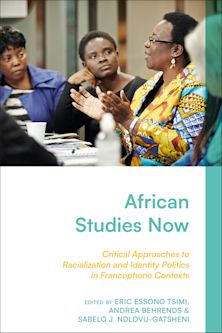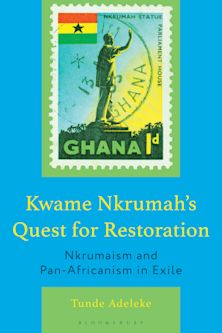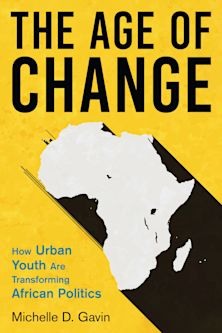- Home
- ACADEMIC
- Politics & International Relations
- African Politics
- Rewriting Literary Blackness in Harlem
Rewriting Literary Blackness in Harlem
The Intertextuality of Hubert Harrison, George S. Schuyler, and Wallace Thurman
Rewriting Literary Blackness in Harlem
The Intertextuality of Hubert Harrison, George S. Schuyler, and Wallace Thurman
This product is usually dispatched within 1 week
- Delivery and returns info
-
Free CA delivery on orders $40 or over
You must sign in to add this item to your wishlist. Please sign in or create an account
Description
For decades, scholars have placed the “New Negro” and Harlem’s Literati movements and their participants under the Harlem Renaissance’s umbrella with these monikers used interchangeably in scholarship to describe a seemingly singular literary and cultural moment in history. In Rewriting Literary Blackness in Harlem: The Intertextuality of Hubert Harrison, George S. Schuyler, and Wallace Thurman, Tammie Jenkins argues that these are distinct movements that share intertextually related ideological views that occurred on a literary continuum. Harrison’s, Schuyler’s, and Thurman’s contributions have rarely been viewed and analyzed through an isolation of their respective movements. Using works published by Harrison, Schuyler, and Thurman during the early twentieth century, Jenkins investigates how their works redefined blackness at the intersections of race, gender, class, and geography. This book provides new insight into the intertextual relationships between the New Negro Movement, the Harlem Renaissance and Harlem’s Literati to scholars and academic libraries interested in cultivating and expanding understandings in African American Literature, African American History, Black Studies, and African American Studies.
Table of Contents
Introduction: Passing for One, Now the Other
Chapter One: Hubert Henry Harrison: New Negro Street Corner Radicalism
Chapter Two: George Schuyler and his Black No More Renaissance
Chapter Three: Wallace Thurman’s Youth Blackens the Berries
Conclusion: Rethinking Blackness in Three Parts
Appendix: Further Readings
Bibliography
About the Author
Product details
| Published | Aug 01 2024 |
|---|---|
| Format | Hardback |
| Edition | 1st |
| Extent | 166 |
| ISBN | 9781666911268 |
| Imprint | Lexington Books |
| Dimensions | 238 x 158 mm |
| Publisher | Bloomsbury Publishing |
About the contributors
Reviews
-
In Rewriting Literary Blackness in Harlem, Tammie Jenkins provides us with a fascinating study and sweeping historical grounding of Harlem’s Black intellectual life during one of America’s most seminal periods (1920—1930s) for Black political thought, cultural expression, and activism. Through the double-barreled academic approach of intertextuality theory and narrative inquiry, complex organic intellectuals and towering literary and socially-engaged figures, such as Hubert Henry Harrison, George S. Schuyler, and Wallace Thurman, are refracted through the kaleidoscopic lens of Jenkins’ prodigious insight, where in her hands, the malleability of Blackness is like a Rubik’s Cube where there are no fixed patterns or definitions. In this book we see the convergence of Black peoples’ quest for freedom through the ideological trains—Black Radicalism, Black Conservatism, Black Nationalism, Pan Africanism—that to this day are still running. Jenkins offers us a concise history of Black identity and framing along with the various naming and struggle for dignity beyond racial constructions, constrictions, and the ongoing antagonisms of capitalism. It is the nimble work of a Black Deconstructionist and diasporic detective that describes how we got here. And like those trains, it’s right on time.
Tony Medina, Howard University

ONLINE RESOURCES
Bloomsbury Collections
This book is available on Bloomsbury Collections where your library has access.



































